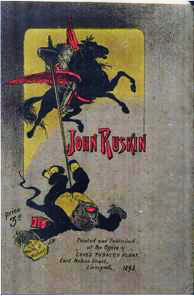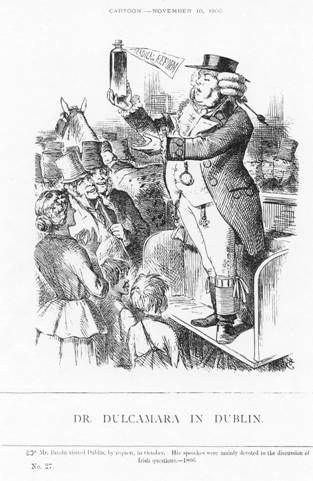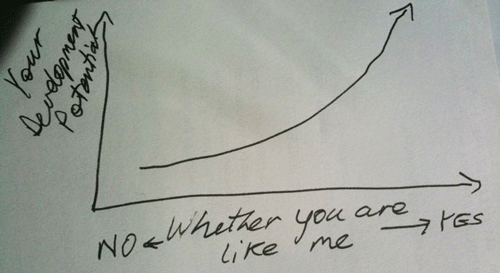This post is by Adam Martin, a post-doctoral fellow at DRI.
A couple months ago, Bill addressed the imperial origins of state-led development, arguing that economic development was a substitute for racism as a rationalization of empire. I think it’s worthwhile to delve a bit further into the intellectual and social context in which these ideas were put forward.
Why bother? Because ideas matter for policy. There are good, hard-nosed reasons for believing that rationales are not mere epiphenomena of political interests. Understanding why and how certain policies are implemented requires some digging into the justifications of policymakers. A bit of intellectual archaeology might also identify some path dependence in economic thinking about development. The point is not to impugn the motives of current policymakers or academic researchers, but to shed light on any hidden intellectual baggage that might be weighing down their efforts. Old dead economists might teach us something valuable after all.

How do the ideas of economists fit into this historical collision of racism, imperialism, and international politics that gave us the development establishment? Before jumping right into more proximate causes, a bit of pre-history might help set the scene. WWII was not the dismal science's first collision with race and empire. As it turns out, the "dismal" moniker that economists have long enjoyed stems from those very debates.
David Levy and Sandra Peart have extensively chronicled the relationship between classical economics and the racism contemporary to it. The surprise ending? The economists were the good guys. That's right. Vile, contemptible economists--apologists for markets, purveyors of selfishness--were the public defenders of racial equality (along with the "Exeter Hall" evangelical Christians). Then who were the bad guys? The poets: Thomas Carlyle, John Ruskin, and everyone's favorite literary critic of capitalism, Charles Dickens. It was Carlyle who christened economics as the dismal science, in contrast with the "gay science" of poetry. The context is shocking:
Truly, my philanthropic friends, Exeter Hall philanthropy is wonderful; and the social science -- not a "gay science," but a rueful --which finds the secret of this universe in "supply and demand," and reduces the duty of human governors to that of letting men alone, is also wonderful. Not a "gay science," I should say, like some we have heard of; no, a dreary, desolate and, indeed, quite abject and distressing one; what we might call, by way of eminence, the dismal science. These two, Exeter Hall philanthropy and the Dismal Science, led by any sacred cause of black emancipation, or the like, to fall in love and make a wedding of it -- will give birth to progenies and prodigies: dark extensive moon-calves, unnameable abortions, wide-coiled monstrosities, such as the world has not seen hitherto!
Carlyle is arguing here for the reintroduction of slavery in the West Indian colonies. John Stuart Mill responded, in line with classical economists' assumption of a deep human homogeneity. Differences between societies are the result of the incentives individuals face, meaning that history and institutions are the root cause of different levels of development. By contrast, the Romantic poets argued that inherent differences between individuals justified hierarchical relationships--for the good of the lesser races, of course. They longed for bygone feudalism when better men cared for their inferiors, while the economists argued that equals should come together in mutually beneficial market exchange.
 Economists played this part again in the debate over Irish home rule, arguing that Ireland's economic backwardness was due to bad institutional arrangements, themselves the result of centuries of British invasions. For their part, the economists' opponents depicted them--personified as John Bright--as peddling snake oil to the subhuman Irish.
Economists played this part again in the debate over Irish home rule, arguing that Ireland's economic backwardness was due to bad institutional arrangements, themselves the result of centuries of British invasions. For their part, the economists' opponents depicted them--personified as John Bright--as peddling snake oil to the subhuman Irish.
In both these cases, economists' underlying egalitarianism clashed with paternalism of an ugly sort. The "dismal" label should be worn as a badge of honor for precisely this reason. But why did later dismal scientists sign on so readily to the paternalist project of development? Why were voices like Bauer and Frankel so rare? I don't think the abandonment of racist language is a sufficient cause. Other tectonic shifts in economic thought took place in the intervening decades. Which were decisive? This is an open question worth pursuing further.
 Why should economists continue to work on such ambitious Big Ideas in Development -- what drives Development? Freedom? Property Rights? Human Capital? Whether you are just like ME?
One good reason is that most people are going to have their own Big Ideas anyway. If economists and other social scientists refuse to discuss Big Ideas, then people will just base them on some random anecdote or on laughably casual empirics. (I once heard a prominent non-development economist say he understood underdevelopment after his first 5 minutes in a poor country.)
Why should economists continue to work on such ambitious Big Ideas in Development -- what drives Development? Freedom? Property Rights? Human Capital? Whether you are just like ME?
One good reason is that most people are going to have their own Big Ideas anyway. If economists and other social scientists refuse to discuss Big Ideas, then people will just base them on some random anecdote or on laughably casual empirics. (I once heard a prominent non-development economist say he understood underdevelopment after his first 5 minutes in a poor country.) From Aid to Equality
From Aid to Equality




